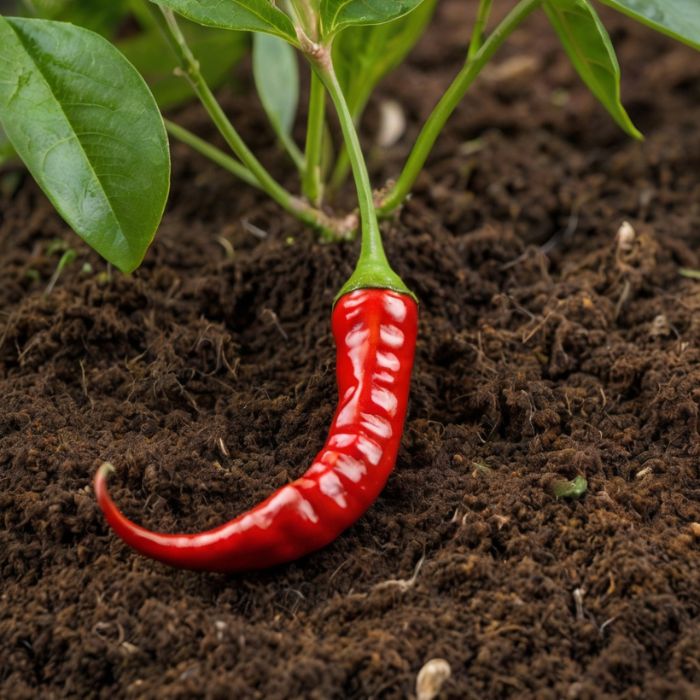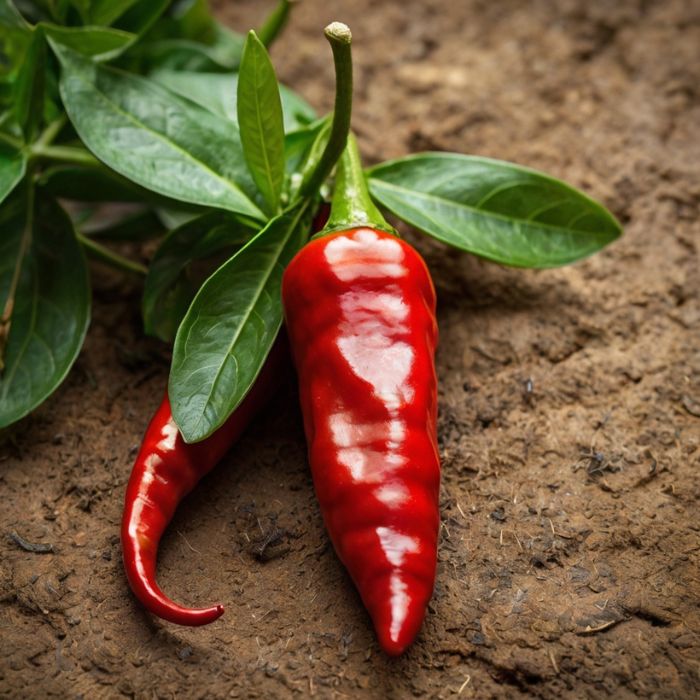Does Cayenne Pepper Really Keep Pests Out of Your Garden? An Expert Weighs In
Gardening is a rewarding hobby that can bring beauty, fresh produce, and a sense of satisfaction. However, one of the biggest challenges gardeners face is keeping pests from damaging their hard work. Many people are searching for natural and effective ways to deter pests without relying on harsh chemicals. One popular solution that has gained attention is cayenne pepper. But does cayenne pepper really keep pests out of your garden? We’re diving into this question with an in-depth look at how Cayenne Pepper Pest Control can be used as a pest deterrent, why it works, and how to apply it effectively in your garden.
Why Cayenne Pepper as a Pest Deterrent?
Cayenne pepper contains a compound called capsaicin, the chemical responsible for its spicy, intense heat. While humans enjoy cayenne’s flavor in cooking, pests like rodents, insects, and small mammals are generally repelled by the taste and smell of capsaicin. This quality has led gardeners to experiment with cayenne pepper as a natural pest repellent in their outdoor spaces.
Capsaicin is highly irritating to many animals’ senses, affecting their eyes, nose, and taste. Unlike traditional pesticides that can have harmful side effects on the environment, cayenne pepper is safe for plants and animals when used appropriately. This makes it an appealing, eco-friendly solution for those aiming to reduce their reliance on chemicals.
How Cayenne Pepper Affects Different Types of Garden Pests
Different pests react differently to cayenne pepper. Here’s a closer look at how it affects some of the most common garden intruders:
Rodents (Mice, Rats, and Squirrels)
Rodents have a highly developed sense of smell, making them particularly susceptible to the strong, spicy scent of cayenne pepper. When sprinkled around plants, cayenne pepper can deter these pests from chewing on stems, roots, and vegetables. For squirrels, in particular, cayenne pepper can be an effective deterrent around bird feeders and flower beds.
Insects (Ants, Aphids, and Caterpillars)
For insects, cayenne pepper works by irritating their bodies and repelling them from treated areas. Ants, for instance, will avoid places where cayenne pepper is present as they rely heavily on scent trails to find food. Aphids and caterpillars also dislike the pepper’s pungent scent and will steer clear of areas treated with cayenne.
Larger Mammals (Deer and Rabbits)
Deer and rabbits can be persistent and challenging pests in gardens, especially since they enjoy munching on tender shoots and leaves. However, the strong, spicy taste of cayenne pepper deters these larger mammals from grazing in treated areas. Spraying a cayenne solution on plants frequented by these animals can reduce their presence in your garden.
How to Apply Cayenne Pepper in Your Garden
Using cayenne pepper as a garden pest deterrent is simple and versatile. Here are several methods you can try, depending on your specific pest problem and the layout of your garden:
1. Cayenne Pepper Spray
A cayenne pepper spray is one of the most effective ways to repel pests. Here’s how to make and apply it:
- Mix Ingredients: Combine one gallon of water, one tablespoon of cayenne pepper powder, and a few drops of dish soap (the soap helps the solution stick to leaves). For extra potency, add a minced garlic clove.
- Boil and Cool: Bring the mixture to a boil and let it simmer for five minutes. Allow it to cool to room temperature.
- Strain and Transfer: Strain the solution into a spray bottle.
- Apply: Spray the solution directly onto plants, particularly on leaves and stems where pests are likely to be present. Reapply after rain or heavy watering.

2. Cayenne Pepper Powder
Sprinkling cayenne pepper powder directly onto the soil can help deter ground pests such as ants, slugs, and rodents. Apply a light dusting around the base of plants and along pathways where pests are common. Be cautious not to apply too close to plant stems, as the concentrated powder can sometimes irritate young plants.
3. Cayenne and Companion Planting
Combining cayenne pepper applications with companion planting can boost the effectiveness of your pest control efforts. Plants such as marigolds, garlic, and chives naturally repel pests and can be strategically placed in your garden to provide additional protection. Sprinkling cayenne around these plants can create a powerful, layered defense against unwanted pests.
How Often Should You Apply Cayenne Pepper?
For optimal results, reapply cayenne pepper spray or powder every few days, especially after heavy rain or watering. Capsaicin can wash away over time, diminishing its effectiveness. During the peak pest season, a twice-weekly application can help maintain consistent pest control in your garden.
Is Cayenne Pepper Safe for Plants and Soil?
Cayenne pepper is generally safe for plants when applied correctly. Its use as a natural pest deterrent offers an eco-friendly alternative to synthetic chemicals. However, it’s important to avoid excessive use. Overapplying cayenne powder or spray can cause mild irritation to plant leaves, particularly on young or delicate plants. When applying cayenne pepper, try to avoid the direct application to leaves, focusing instead on areas around the plants and on pathways.
Effects on Soil Health
Cayenne pepper has minimal impact on soil health. Its main component, capsaicin, does not affect soil acidity, structure, or nutrient levels. However, if used frequently, rinse the soil with water to prevent any potential build-up of the pepper’s compounds, particularly if you have sensitive plants in your garden.
Other Natural Pest Control Alternatives
If cayenne pepper alone isn’t enough to address your garden’s pest problems, consider pairing it with other natural pest control methods. Some effective complementary strategies include:
- Neem Oil: A powerful natural insecticide that works against a wide range of pests, including aphids and spider mites.
- Garlic Spray: The strong smell of garlic can repel insects and animals alike, and works well alongside cayenne pepper.
- Coffee Grounds: Coffee grounds repel ants and slugs while also enriching the soil.
- Eggshells: Crushed eggshells around plants can deter slugs and caterpillars.
Combining these methods with cayenne pepper can provide a more comprehensive, environmentally friendly pest management plan.
Pros and Cons of Using Cayenne Pepper as a Pest Deterrent
Pros
- Eco-Friendly: Cayenne pepper is biodegradable and poses no risk to the environment.
- Non-Toxic: It’s a natural solution safe for children, pets, and beneficial insects when used correctly.
- Effective Against Multiple Pests: It can deter a wide range of common pests, including insects, rodents, and larger animals.
Cons
- Requires Reapplication: Frequent reapplication may be needed, especially in rainy weather.
- May Irritate Beneficial Insects: While generally safe, cayenne pepper can potentially repel pollinators and other beneficial insects if applied in excess.
- Potential Plant Irritation: Excessive use can cause irritation to plant leaves, particularly young or tender plants.
Final Thoughts on Using Cayenne Pepper in Your Garden
Cayenne pepper is a versatile, natural pest deterrent that offers a solution for gardeners looking to keep pests away without harming the environment. Its strong smell and spicy taste effectively repel many pests, from insects to larger animals like deer and rabbits. By understanding how and where to apply cayenne pepper, you can use this spice to protect your plants while keeping your garden safe and eco-friendly. Essential Fall Garden Tasks You Can’t Afford to Skip

